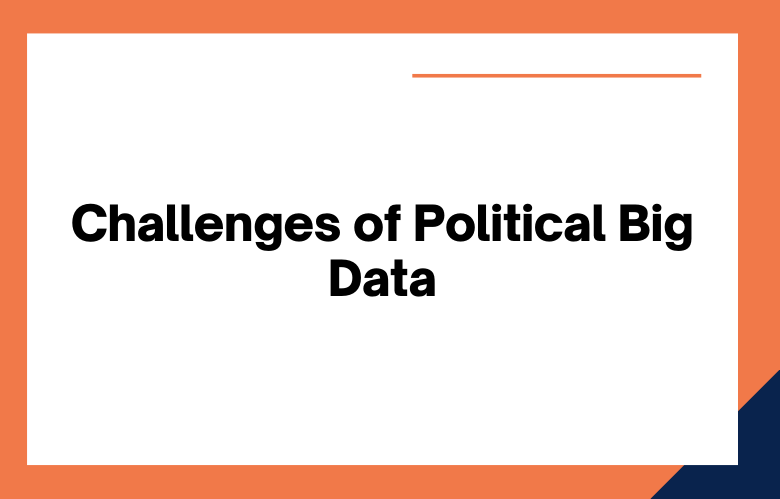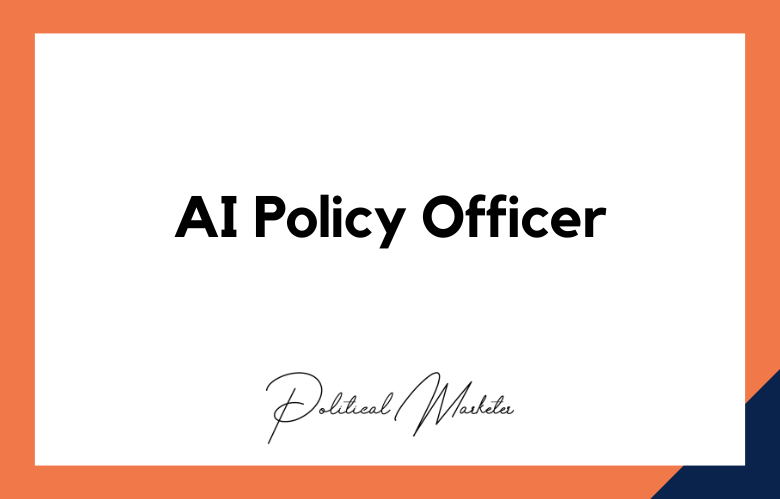It’s no secret that big data is shaping the world of politics as we know it. Extensive information is integral to the political process, from targeting voters to analyzing public opinion.
However, several challenges come with managing and using big data in politics.
We’ll look at some top challenges and explore ways to overcome them.
Political data has existed for as long as politics has. However, the use of big data in politics is a more recent phenomenon.
The potential of big data to help political campaigns understand and target voters is enormous. However, many challenges must be overcome before this potential can be realized.
We will explore the top challenges of big political data and how to overcome them.
Political Big Data is one of the most exciting and rapidly growing fields in data science.
However, it follows its own set of unique challenges.
We’ll look at some of the top challenges of Political Big Data and how to overcome them. Stay tuned!
What is Political Big Data?
It’s a new way of looking at politics. It’s a way of using data to understand the world and make better decisions. This term will describe collecting and analyzing large amounts of data to predict future political trends.
- Political big data will be used to identify potential supporters, understand what issues are important to them, and predict how they should vote.
- Political Big Data refers to the vast daily data individuals, organizations, and government institutions generate.
- This data can be used to track and analyze trends, understand public opinion, and predict outcomes of elections and other political events.
- Political Big Data can transform how we understand and participate in politics.
- Big data is a term that refers to the large, diverse sets of data that businesses and organizations collect.
- Political big data is a field that uses big data to examine political issues and solve problems.
- Political big data will be used to track voting patterns, understand campaign strategies, and predict election outcomes.
- By understanding big political data, we can gain insights into the workings of our democracy and how to improve it.
Top Challenges of Political Big Data
When it comes to big political data, one of the top challenges is dealing with the volume of data.
One more challenge is dealing with the variety of data. You might have data from different sources, in various formats, and on other topics.
Yet another challenge is ensuring the quality of your data. With big political data, you need to be sure that your data is accurate and reliable.
One of the top challenges of big political data is how to collect and store it. Another challenge is how to retrieve, analyze, and visualize it. Lastly, we will discuss protecting it from unauthorized access and misuse.
These are a few challenges that political campaigns face regarding big data. With much information at their disposal, it can be challenging to know where to start. However, these challenges will be easily overcome with proper planning and actions for responsible data usage.
One of the top challenges of big political data is that it is constantly changing. Another challenge is keeping up with the volume of data. An additional challenge is understanding the data and, finally, making sense of the data.
The first and most significant challenge is the sheer volume of data from political campaigns and organizations. Political data is often unstructured and difficult to analyze. Additionally, big political data will sway public opinion and influence elections, raising serious ethical concerns.
Political Big Data is more than just a buzzword. It’s a big challenge for political organizations. They must deal with vast amounts of data from various sources and protect the privacy of the people they represent. Political Big Data is thus a complex and ever-changing landscape.
One of the top challenges of big political data is that it can be difficult to process and define. Another challenge is that it can be easy for political campaigns to misuse or misinterpret data.
One of the top challenges of big political data is the vast volume of data generated daily. Political campaigns and organizations must use this data to find the most relevant information.
Another challenge is the constantly changing landscape of big political data. What was valuable information yesterday may be outdated tomorrow. The key to big political data success is staying on top of the latest trends and advancements.
Accuracy and validity:
There is a lot of data out there, but it’s not all accurate or valid. Political scientists need to be able to filter out the noise and focus on the signal.
Timeliness:
Data will be generated quickly, but cleaning, processing, and analyzing it often takes time. It can make keeping up with the latest trends and developments challenging.
Storage and access:
The sheer volume of data can be overwhelming. Political scientists need to be able to store that data.
How to Overcome Political Big Data Challenges
Understanding big data’s definition is the first step to understanding its challenge.
Remembering that big data is more than just a large volume is essential.
It’s more about how data is generated and collected and the various types managed.
The significant data challenges in the political arena will be easy to overcome. Understanding what big data is essential and how it can be used effectively is critical.
The challenges posed by big data in politics will be easy to overcome. First, it is essential to understand what big political data is.
In short, big political data will help predict and understand political outcomes.
There are many ways to Collect big political data, but one of the most common methods is social media.
By analyzing social media posts, researchers can better understand people’s opinions and beliefs about various political issues.
Once researchers have collected large amounts of political data, they need to clean and process it before using it for analysis.
Cleaning and processing data can be time-consuming and challenging, but it is necessary to ensure.
Political leaders have long used data to track and respond to constituents’ needs.
However, in recent years, the scale and complexity of big data have overwhelmed traditional approaches.
As a result, many political organizations struggle to keep up with the rapidly changing landscape.
Here are four key ways that political leaders can overcome the challenges of big data:
- By understanding the new types of data available.
- By harnessing the power of data analytics.
- By building a team of skilled data professionals.
- By collaborating with other organizations to share data and expertise.
Big data is often used to sway public opinion and shape political outcomes. However, this same data will also be used to fight misinformation and manipulation. By understanding how big political data is collected and operated, we can start overcoming its challenges.
Conclusion
Political Big Data is a rapidly growing field with many challenges. However, the right tools and strategies can help you overcome these challenges and use Political Big Data to your advantage.
Contact us today for more information on how we can help you get the most out of political big data.
One way to get in touch is by filling out our online form on this site or give us a call at
+91 9848321284. Let’s work together today!











